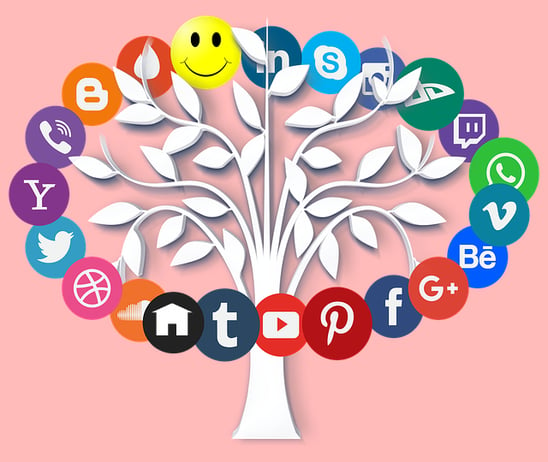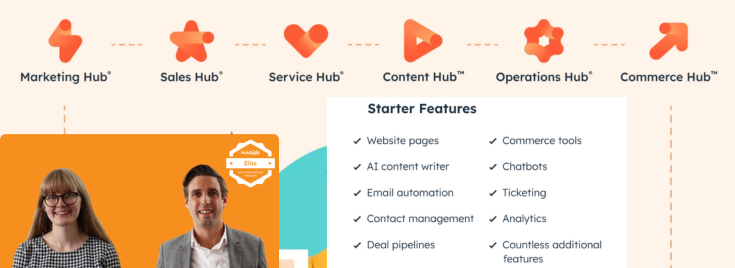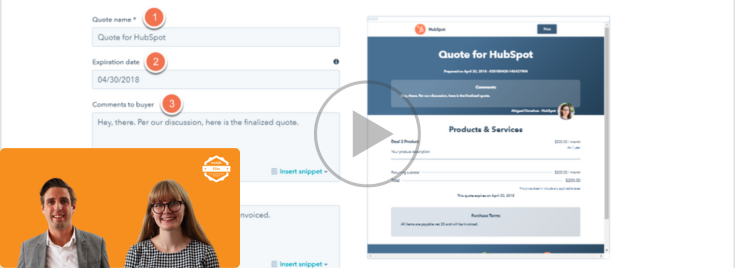The 6 Biggest Mistakes You Can Make When Marketing With Social Media
by Leanne Mordue on 07-Apr-2017 13:45:00

Most of your suppliers, competitors and customers will have a presence (formally at least) on the big three social media platforms: Twitter, Facebook and LinkedIn. You may well use social media for business yourself.
However, for every small business that successfully uses social media to generate leads and get sales, there are 10, 25, 50 other businesses that fail to make an impact. What are the reasons for this? The success stories prove that social media marketing does work and it does bring results, but many business users fall prey to the same few common mistakes.
Take a look through the following list and see if any of them apply to you. It is very easy to make common errors when using social media, with the result that the expected outcomes fail to materialise.
1) Using The Same Content On All Your Platforms
Creating content to use on social media takes a long time, and at a small business, time is a precious resource. Scheduling applications such as HootSuite were heralded as a godsend for SMEs as it allowed people to schedule social media posts up to six months in advance, on multiple platforms. This was, and still is, a massive timesaver, but the big temptation is now to use the same social media updates on Facebook, LinkedIn, Twitter and the rest. This is a mistake. Each platform requires a specific approach to content that isn’t always appropriate to the others. Also, most business users have multiple platforms. If one of your prospects sees the same content come through on Twitter as they do on Facebook, then they will soon start to ignore your updates altogether. You may even lose a potential customer this way.
2) Taking On Too Much Social Media Activity
Social media marketing takes a big investment in time and resources. A common mistake SMEs make is to spread themselves too thinly. It may seem like a good idea to try and be active on three or more social media platforms, but if you haven’t got the time to use them all to their full potential, then you risk losing out on the advantages of any of them. This mistake explains why so many business social media profiles look like ghost towns, or are only occasionally updated. It is better to focus on one or two platforms and give it all you’ve got, creating a regular stream of relevant and interesting content. Otherwise your prospects will lose interest.
3) Not Engaging With Prospects Personally
The great thing about social media is that it makes marketing personal again. It lets you chat in real-time with named individuals, without having to sit through awkward lunches or pay hundreds of pounds for networking events. What an asset! It is such a shame therefore, when comments and messages from prospects go unanswered.
This is usually a combination of a lack of time and too much automation, i.e. problems one and two. Avoid this by monitoring your social media platforms regularly to make sure all messages are picked up, and make a point of replying to each one. Your customers will appreciate this and it reflects well on your business.
4) Making It All About You
Social media marketing is as much about giving as it is receiving. Social media users appreciate varied and useful content, so avoid the mistake of solely publishing company announcements and sales pitches. Share other people’s content from time to time if you think your customers will find this interesting. ‘Like’ other people’s stuff. Write non-promotional blog posts and publish them on social media. Give away free downloadable content or discount coupons to your social media followers. Make people smile, and you will start to build a relationship of trust.
5) Striking The Wrong Sales Balance
Selling too much on social media is a huge turnoff. Don’t try too hard. Instead, concentrate on relationship building with your prospects as the bedrock for a customer/supplier relationship. The opposite problem is to not sell enough. Ultimately, the purpose of social media marketing is to generate leads and gain more sales. While it isn’t advisable to take a hard sell approach, you should have outcomes in mind and an idea of where your social media strategy fits on your sales and marketing funnel. You need to figure out when a prospect is ready to receive a sales approach and not be afraid to do this.
6) Not Using Analytics
Social media marketing is deliciously measurable. Native apps on each of the main platforms can track exactly who accesses your content, where they come from, where they go and what they share. This is enormously helpful in determining what approaches work and which ones fall flat, and which prospects are ready to progress to the ‘next stage’ in your relationship. Not taking advantage of analytics is a common mistake, and is often fatal, as it dooms SMEs to miss opportunities and keep making the same mistakes.
This article may have presented social media marketing as a minefield, but this wasn’t our intention! Of all the branches of digital marketing, social media has the lowest financial entrance barrier and is the most accessible to small businesses. Furthermore, it is a great lead generation tool when used properly. The key is to think strategically and use each social media platform to its full advantage. Our team of marketing specialists at JDR can help you with this. Get in touch today to find out more about our small business marketing packages.
- Inbound Marketing (SEO, PPC, Social Media, Video) (824)
- Strategy (363)
- Sales & CRM (195)
- Marketing Automation & Email Marketing (190)
- Business Growth (164)
- Website Design (160)
- Hubspot (138)
- Lead Generation (115)
- Google Adwords (98)
- Content Marketing (94)
- Conversion (48)
- Case Studies (47)
- News (47)
- Ecommerce (39)
- Webinars (34)
- SEO (24)
- AI (20)
- Events (19)
- Video (17)
- LinkedIn Advertising (15)
- Video Selling (15)
- Software training (13)
- Niche business marketing (11)
- The Digital Prosperity Podcast (10)
- Facebook Advertising (6)
- HubSpot Case Studies (5)
- December 2025 (10)
- November 2025 (6)
- October 2025 (17)
- September 2025 (16)
- August 2025 (14)
- July 2025 (14)
- June 2025 (5)
- May 2025 (19)
- April 2025 (15)
- March 2025 (13)
- February 2025 (13)
- January 2025 (8)
- December 2024 (2)
- November 2024 (4)
- October 2024 (21)
- September 2024 (4)
- August 2024 (8)
- July 2024 (14)
- June 2024 (16)
- May 2024 (25)
- April 2024 (15)
- March 2024 (18)
- February 2024 (5)
- January 2024 (10)
- December 2023 (6)
- November 2023 (10)
- October 2023 (13)
- September 2023 (12)
- August 2023 (14)
- July 2023 (13)
- June 2023 (14)
- May 2023 (15)
- April 2023 (13)
- March 2023 (14)
- February 2023 (13)
- January 2023 (15)
- December 2022 (13)
- November 2022 (6)
- October 2022 (8)
- September 2022 (22)
- August 2022 (15)
- July 2022 (13)
- June 2022 (16)
- May 2022 (14)
- April 2022 (16)
- March 2022 (17)
- February 2022 (11)
- January 2022 (8)
- December 2021 (6)
- November 2021 (7)
- October 2021 (11)
- September 2021 (10)
- August 2021 (7)
- July 2021 (7)
- June 2021 (4)
- May 2021 (4)
- April 2021 (1)
- March 2021 (3)
- February 2021 (5)
- January 2021 (4)
- December 2020 (7)
- November 2020 (6)
- October 2020 (5)
- September 2020 (9)
- August 2020 (18)
- July 2020 (17)
- June 2020 (17)
- May 2020 (10)
- April 2020 (21)
- March 2020 (24)
- February 2020 (21)
- January 2020 (12)
- December 2019 (23)
- November 2019 (12)
- October 2019 (14)
- September 2019 (16)
- August 2019 (15)
- July 2019 (13)
- June 2019 (6)
- May 2019 (8)
- April 2019 (4)
- March 2019 (2)
- February 2019 (2)
- January 2019 (2)
- December 2018 (3)
- November 2018 (24)
- September 2018 (11)
- August 2018 (9)
- June 2018 (3)
- May 2018 (6)
- April 2018 (14)
- March 2018 (12)
- February 2018 (16)
- January 2018 (15)
- December 2017 (15)
- November 2017 (18)
- October 2017 (23)
- September 2017 (19)
- August 2017 (28)
- July 2017 (27)
- June 2017 (25)
- May 2017 (18)
- April 2017 (17)
- March 2017 (16)
- February 2017 (17)
- January 2017 (14)
- December 2016 (21)
- November 2016 (27)
- October 2016 (25)
- September 2016 (16)
- August 2016 (20)
- July 2016 (19)
- June 2016 (14)
- May 2016 (20)
- April 2016 (24)
- March 2016 (22)
- February 2016 (28)
- January 2016 (27)
- December 2015 (28)
- November 2015 (19)
- October 2015 (9)
- September 2015 (12)
- August 2015 (5)
- July 2015 (1)
- June 2015 (10)
- May 2015 (3)
- April 2015 (11)
- March 2015 (14)
- February 2015 (15)
- January 2015 (12)
- December 2014 (2)
- November 2014 (23)
- October 2014 (2)
- September 2014 (2)
- August 2014 (2)
- July 2014 (2)
- June 2014 (7)
- May 2014 (14)
- April 2014 (14)
- March 2014 (7)
- February 2014 (2)
- January 2014 (7)
- December 2013 (9)
- November 2013 (14)
- October 2013 (17)
- September 2013 (3)
- August 2013 (6)
- July 2013 (8)
- June 2013 (4)
- May 2013 (3)
- April 2013 (6)
- March 2013 (6)
- February 2013 (7)
- January 2013 (5)
- December 2012 (3)
- November 2012 (2)
- September 2012 (1)
Subscribe by email
You May Also Like
These Related Blogs

Top Tips For Estate Agents Using Social Media Marketing
Social media can be a valuable part of your marketing strategy. If you're thinking, "but we've tried Facebook before and it didn't work for us", you'r …

REPLAY: How To Get The Most From HubSpot Starter
How To Get The Most From HubSpot Starter

Replay: How To Get More From Quotes (HubSpot Masterclass)
Unlock The Potential Of Your Website! Join Andy Gibbins & Emma Ablewhite in our latest monthly HubSpot masterclass. In this session, you'll discov …



